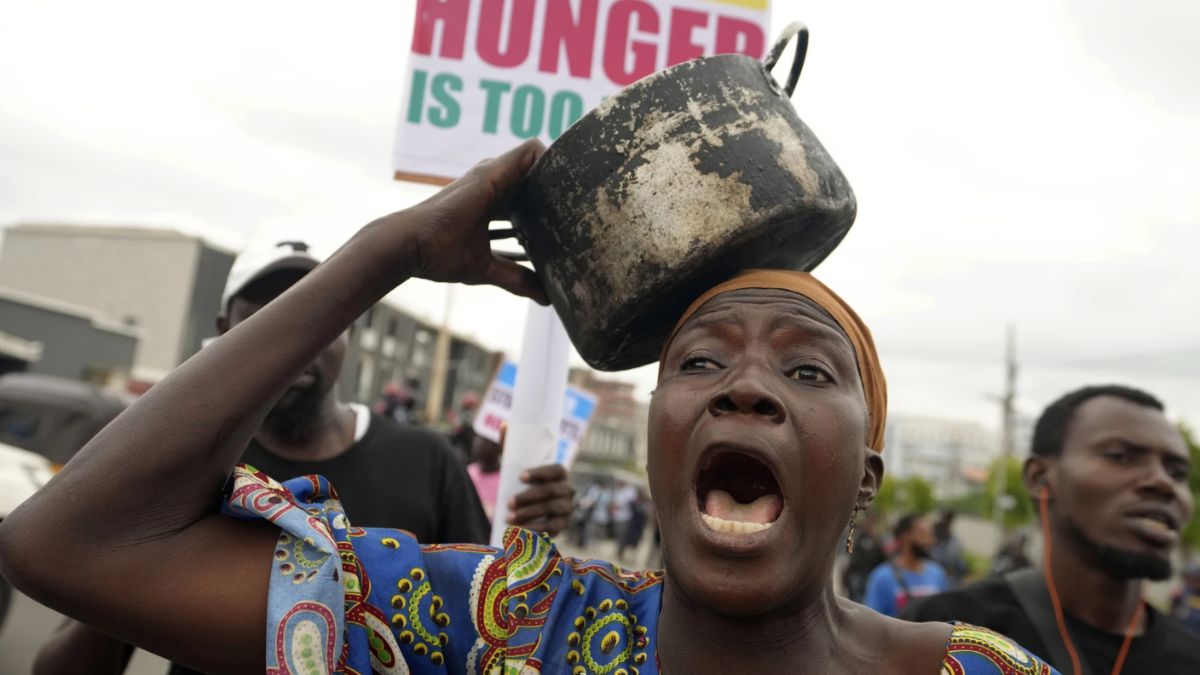Nigeria is facing an escalating hunger crisis, with over 30 million people expected to be food insecure by next year, a 33% increase from 2023, according to a joint report by the Nigerian government and the United Nations.
This worsening food insecurity stems from severe economic challenges, aggravated by recent austerity measures introduced by President Bola Tinubu, including the devaluation of the naira and the removal of a longstanding petrol subsidy.
These reforms meant to stabilie the economy, have fueled inflation and triggered a cost-of-living crisis, leading to widespread unrest and deadly protests in August. The biannual assessment, which covers 26 states and the federal capital, warns that by August 2024, 33.1 million Nigerians could face food insecurity, a stark rise from the 24.8 million projected by the end of this year.
”Several factors are driving this trend, but most prominently are economic hardship coupled with record high inflation, a record rise in food prices and record high transportation costs,” a statement accompanying the report said.
Chi Lael, World Food Programme spokesperson in Nigeria told Reuters that ”economic decisions to strengthen the country in the long term, in the short term have felt like a direct attack on people’s wallets, hitting hardest every time they try to buy food.”
Finance Minister Wale Edun said on Thursday 5 million households had so far received cash handouts of 25,000 naira ($15.45), as part of the government’s programme to help the most vulnerable families.
High food prices have contributed the most to inflation, which advanced to 32.70% in annual terms in September from 32.15% in August.
Flooding and insecurity in northern states continued to hit agriculture, further driving up food prices beyond the reach of many families.
Impact Shorts
More ShortsLast month’s floods destroyed an estimated 1.6 million hectares of crops, mainly in the northern food basket states, potentially causing production losses of a combined 1.1 million tonnes for maize, sorghum and rice, the joint statement said.
That is enough to meet the daily food needs of about 13 million people for a year.
In financial terms, the potential cereal crop losses amount to almost $1 billion in economic losses, the statement added.
With inputs from agencies.
)